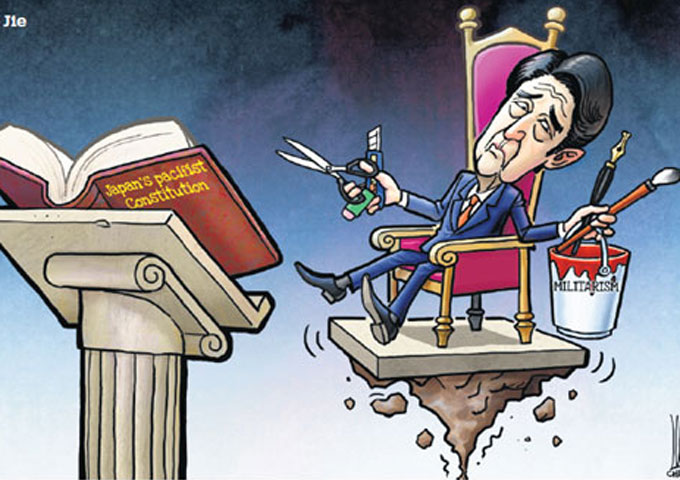China and the G20 Summit
 |
|
President Xi Jinping presides over a meeting of the BRICS countries - Brazil, Russia, India, China and South Africa - on the sidelines of the G20 summit in Hamburg on July 7. [Photo/Agencies] |
The G20 summit in Hamburg is very important because the world is confronting several important issues that need global solutions. As the group that comprises countries that generate 85% of the world economy, the G20 countries, that get together industrialized and developing countries, should promote actions to make the world better and peaceful.
One of the issues that require the most attention is the growth of the world economy and how to fight protectionism, especially when the new administration in the US is preaching unilateralism and tries to diminish the role of the multilateral forum, the World Trade Organization. In the past G7 may summit of the richest countries US reluctantly agreed to put in the final communique the fight to protectionism, after in the early may meeting of APEC Trade Ministers of APEC in Vietnam the US Trade Representative opposed language that called for all member economies to fight against protectionism. It is also know that US favor bilateral negotiations, after rejecting the TPP agreement and beginning the renegotiation of the NAFTA treaty. In this scenario other countries should take the lead to fight protectionism and promote free trade and China is steeping in that role. As the leading trading nations and one of the fastest growing economies in the world China has stated that it will do that and is taking steps to open more itself to foreign goods and investment as also China has become one of the biggest investors in the world.
Also in the issue of the climate change, after the US pulled out of the Paris Climate Agreement, others countries are stepping to fill the gap. China, as a country that is fighting to address climate change and environmental pollution in its own country, and as a leader in technologies to fight that, is well suited to assume the responsibility that US withdrew. China is the major producer of solar panels, wind turbines, electric cars, and can contribute with these technologies to the whole word.
Another issue that requires common action but also leadership is the question of how to address the dire need of physical infrastructure that many developing countries have. The lack of proper ports, airports, seaports to move fast, easily and cheap goods and people is of primary importance. China fast economic development is due, in big part, to the excellent physical infrastructure built in the last 30 years. So China proposal of the Belt and Road initiative, initially intent to improve connectivity between Asia and Europe, could be extended to the whole world. Also initiatives for financing this and similar projects like the Asian Infrastructure Investment Bank should be considered and get the support of the G20 member countries.
The fight against extremism and terrorism is also of importance as no country seems to be excluded from those menaces. China itself have suffered from that. In this matter coordination among countries to share information about dangerous elements and ideas should be strengthened. The need to fight the dissemination of dangerous ideologies online for example and the need to control the flow of information in that issue is something that China is pursuing and advocating. Internet should be free but not when it compromise the security and safety of a country and a society.
Finally, there is a need of a global governance to address global issues. The G7 meeting of the richest countries have shown that they cannot pursue alone that as they themselves do not agree, as shown in the last G7 Summit when US as mentioned opposed initiatives of the other countries. Even United Kingdom, busy with its Brexit deal, sometimes siding with the US, seems alienated from its European counterparts. So in this scenario the developing countries have an opportunity to propose solutions as there are the main affected by the issues mentioned of protectionism, climate change, lack of proper physical infrastructure, and terrorism. So these countries should take the lead. China as the second biggest world economy, as the main engine of that growth, and as the main advocate of the fight against protectionism, the need to combat climate change, and the need to build physical infrastructure, among others, has a special role to play in the G20 meeting.
Carlos Aquino Rodriguez is professor at San Marcos National University in Peru and director of its Institute of Economics Research. He is a specialist in the research of the economic development of East Asia.





















